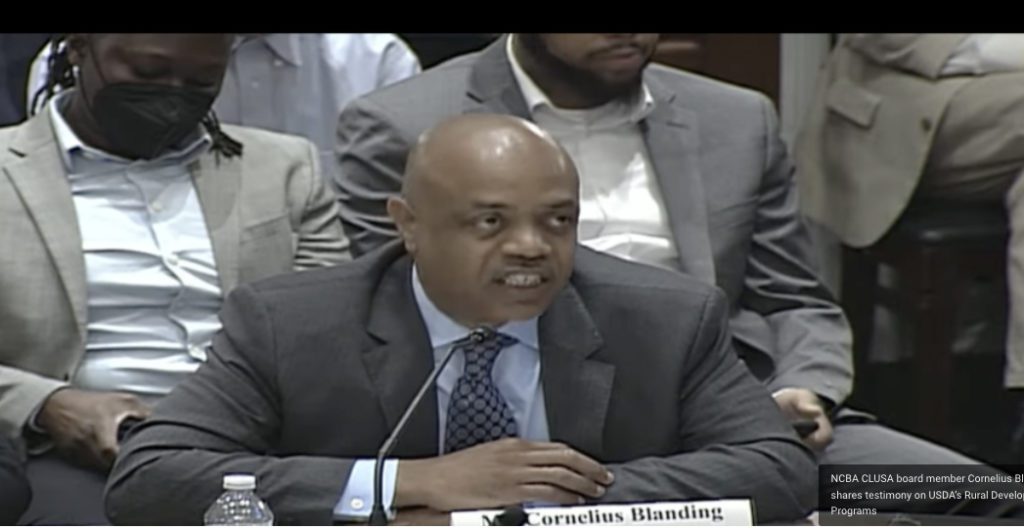By Alice Toomer-McAlpine
Leaders from the US agriculture and electric co-op sectors contributed to a hearing last week to share experience and recommendations for the forthcoming 2023 Farm Bill.
The hearing sought perspectives on the US Department of Agriculture’s (USDA) rural development programmes, part of the 2018 Farm Bill which is due for reauthorisation by Congress later this year.
Cornelius Blanding, executive director of the Federation of Southern Cooperatives, testified in his capacity as an elected board member for national co-operative apex NCBA CLUSA. He highlighted the role USDA rural development programmes, such as the Rural Cooperative Development Grant (RCDG), have played in local rural economies over the past five years.
The RCDG provides funds for technical assistance, training, education and outreach to co-operatives. Since the last Farm Bill, the RCDG has created 300 new businesses and helped create and save thousands of rural jobs, said Blanding.
He said the next Farm Bill should increase flexibility for programmes such as RCDG, target efforts towards historically underserved communities, and invest in infrastructure around electric, water and housing to encourage sustainable long term rural development.
“Co-operatives are rooted in local economies and more resilient during economic downturns,” added Blanding. “Rural areas are overrepresented in key economic indicators such as persistent poverty, disadvantaged communities and lowered economic growth with an ageing workforce. Ultimately, rural places have been left behind by federal policy initiatives meant to spur national development. The next Farm Bill presents an opportunity to change this.”
Joshua Winslow, CEO and general manager of Brunswick Electric Membership Corporation, gave testimony on behalf of the National Rural Electric Cooperative Association (NRECA), and stressed the importance of Rural Utilities Service (RUS) loans to rural communities.
“For electric co-operatives, RUS provides more than just financing, it provides the certainty that the federal government is committed to basic needs in rural America,” said Winslow. “From a reliability perspective, it is critical that cooperatives know that RUS will continue to be a trusted lender for baseload capacity as well as intermittent energy sources.”
Policymakers approach energy policies with a focus on maintaining electric grid reliability and meeting future demand, he added, particularly as energy co-ops work to integrate more renewable energy into their portfolios.
Winslow also highlighted that USDA Rural Development programmes such as the Rural Economic Development Loan and Grant Program (REDL&G) helps electric co-ops to provide rural communities with support beyond electrification, such as weatherproofing, emergency vehicles and business incubators.
“The positive effects of this programme, both immediate and downstream, are felt throughout our communities. The reauthorisation of REDL&G and similar programmes would greatly aid in expanding these positive effects for rural communities,” he said.
The new Farm Bill is being drafted, taking the consultation submissions into account, and is expected to be passed by the end of the year.
Courtesy: Coop News

